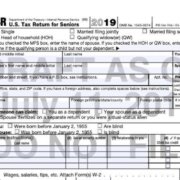
Identity theft as defined by the IRS occurs when someone uses your personal information such as your name, Social Security number (SSN) or other identifying information, without your permission, to commit fraud or other crimes.
“Identity theft continues to top the Federal Trade Commission’s national ranking of consumer complaints, and American consumers reported losing over $1.6 billion to fraud overall in 2013, according to the FTC’s annual report on consumer complaints released today.”
Information Valuable to Identity thieves:
- Name, address
- Date of birth
- Medicare card number
- Driver’s license number
- Social Security number
- Passwords
How does Identity theft happen?
- Data breaches
- Phony emails from imposters
- Social networking
- Stolen wallets
- Corrupt tax preparation services
Warning signs:
- Unusual delay in getting a refund
- IRS notifications:
o Duplicate tax return filing
o Unreported income
o Duplicate dependents
Although there are many ways someone may try to steal your identity there are many ways to reduce the risk of theft.
- Minimize personal information kept in your purse, wallet and smartphone.
- Shred documents with any personal information.
- Do not give out personal information.
- Do not click on links sent from strange emails.
- Use complex passwords
- Check your annual credit reports, one CRA every quarter.
In previous posts we have said how it is important to trust your tax preparer as you have voluntarily given them the information needed to steal your identity. According to a Treasury Department report, in 2012 there were more than 1.8 million cases of stolen returns from taxpayer identity theft. This crime costs taxpayers billions of dollars every year and the statistics show that is it growing. Which state is currently leading the country in the number of cases, none other than our very own sunshine state Florida.
It seems lawmakers have taken notice of the increasing number of cases and are doing something about it. Last month leaders of the the Senate Finance Committee introduced a bill to improve the protection taxpayers have against fraudulent refunds that were claimed with stolen identities. This month the House passed a bill that was introduced by Debbie Wasserman Schultz. D-Fla, with co-sponsors Lamar Smith, R-Texas, and Bob Goodlatte, R-Va, that would make tougher penalties for people that would try to steal tax returns through identity theft.
The intent of the bill is to make stealing the identity of someone less appealing. The bill would increase the maximum penalties for someone caught stealing an identity. It would also add to the definition of identity theft the use of a business or charitable organization to gain sensitive information from people, also known as “phishing”. Another point of the bill would be to have local law enforcement working in better coordination with Justice Department.
It is good to see that lawmakers are trying to put a stop to a growing problem with fraudulent returns and identity theft. As this crime is prevalent here in south Florida it is important to remember that as of right now this bill is not a law, so take care of your sensitive information and make sure to take it to a reputable person if you need help preparing and filing your taxes.
Resources:
Ftc.gov/idtheft
Ftc.gov/taxidtheft







